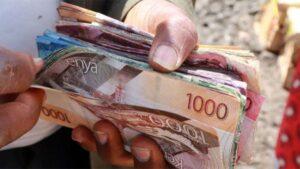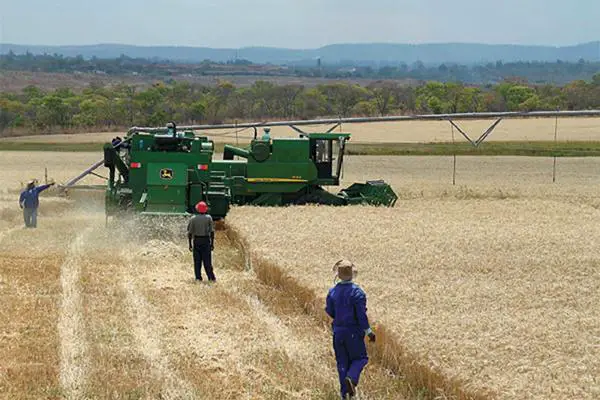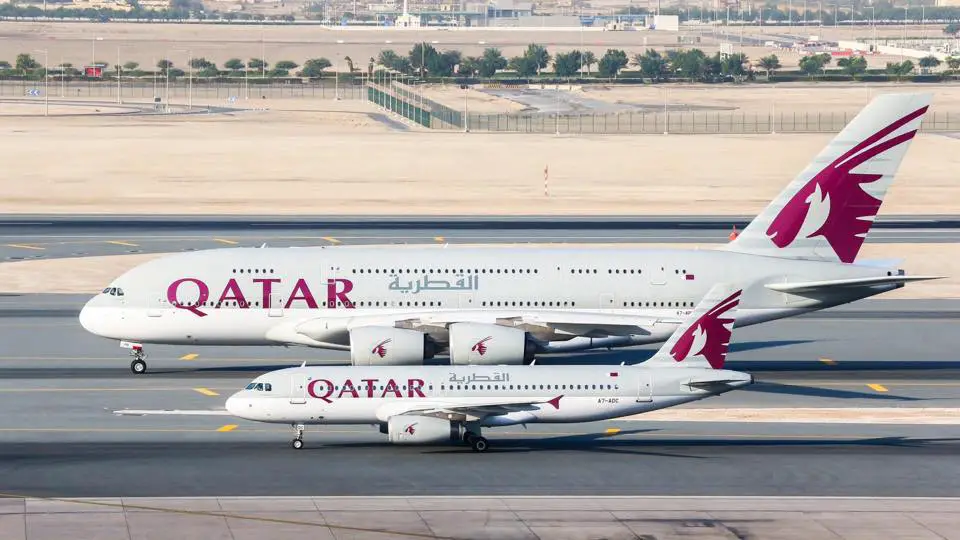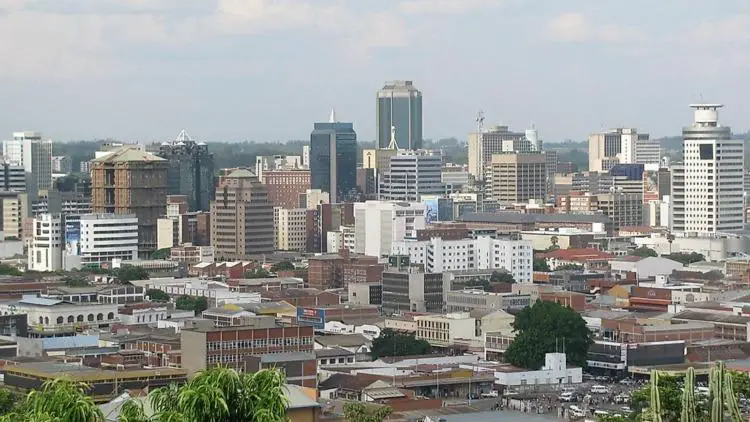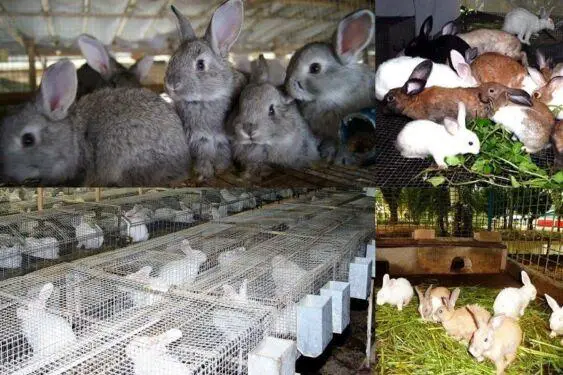- Kenyan Farmers Receive $2M Boost from Africa Fertiliser Financing Mechanism
- Brace for High Interest Rates for a Longer Period World Bank Warns Kenya
- Kenya-Ethiopia Trade Relations: Legislators Advocate for Policy Alignment to Boost Ties
- Visualising the state of debt in Africa 2024
- Abu Dhabi radiates optimism as over 300 startups join AIM Congress 2024
- TLcom Capital Raises $154 million in Funding to Boost Its African Growth
- Africa’s $824Bn debt, resource-backed opaque loans slowing growth — AfDB
- LB Investment brings $1.2 trillion portfolio display to AIM Congress spotlight
Browsing: zimbabwe
Zimbabwe represents an exciting new frontier, with recent exploration activities leading to strong indications of significant oil and gas prospects.
The Southern African country which borders Mozambique to the east, Zambia to the north and South Africa to the south has no proven hydrocarbon reserves yet, instead deriving its energy primarily from hydropower and coal, along with petroleum imports from neighboring countries.
However, with the promise of potential prospects in the Muzarabani Basin which borders Zimbabwe and Mozambique the country is sitting on the verge of a hydrocarbon boom, set to be unlocked through foreign capital, technology and expertise. As Zimbabwe prioritizes the expansion of its energy sector and invites global stakeholders to explore its uncharted territory, the four day African Energy Week (AEW) 2021 in Cape Town in November will serve as the official platform whereby Zimbabwe will showcase its potential to prospective investors.
African Energy Week (AEW) 2021 …
According to official statistics Zimbabwe has started reaping the benefits of a stellar agricultural season after cereal imports, including maize, dropped to 1,9 percent in the five months to May 2021 from 9,1 percent in January.
Statistics from May’s trade report released by the Zimbabwe National Statistical Agency (Zimstat) show that maize output for this season is projected at a record 2,7 million tonnes, about 193,1 percent up from 0,9 million tonnes produced in last season.
The maize output will be complemented by increases in the output of other grains, including sorghum, pear millet and finger millet, a situation that has led to low grain imports, especially after outright ban of maize shipments by the Government.
In Mid-May Zimbabwe suspended maize imports after the country recorded a bumper maize harvest, this was according to Reserve Bank of Zimbabwe Governor John Mangudya who said in a press conference, saying that …
Oude Meester the alcoholic spirits brand once carried an advert many years ago that described the life trajectory of a successful businessman or businesswoman in a leading South African business weekly. In that advert was a picture of a bottle of brandy and its image was a timeline of the journey a businessperson takes starting right at the bottom when his or her entrepreneurial journey begins having started a business, grows that business, listing it on the Johannesburg Stock Exchange and then culminates in that individual running for president of the country.
The advert drew its context from the times. Back then Cyril Ramaphosa and Tokyo Sexwale, political stalwarts within the establishment of the African National Congress had taken sabbaticals from the political sphere and had gone on to achieve notable success in the private sector. Both men had expressed ambition for the presidency. Only one of these men succeed …
South Africa has a market-oriented agricultural economy that is highly diversified and includes the production of all the major grains (except rice), The agricultural sector contributed around 10 percent to South Africa’s total export earnings in FY 2019 at a value of $10.7 billion. The grain industry (barley, maize, oats, sorghum and wheat) is one of the largest agricultural industries in South Africa, contributing more than 30% to the total gross value of agricultural production. The industry is comprised of a number of key stakeholders including input suppliers, farmers, silo owners, traders, millers, bakers, research organizations, financiers, etc but with increasingly severe weather, growing political volatility, cyber concerns and other threats, farmers need to continue to invest in their risk preparedness.
As the farming industry is disrupted by digital, insurers and intermediaries must anticipate emerging risks to remain relevant and be the partner that farmers need. Now’s the time for …
Qatar Airways made its inaugural flight into Harare this week on sixth opening Zimbabwe to a major airline hub and showcasing its confidence in the Second Republic’s efforts to transform the economy.
Zimbabwe is now connected to the massive hub airport at Doha with all its connections around the world. The new routes were the airline’s fifth and sixth destinations in Africa since the outbreak of the Covid-19 in December 2019.
This agreement will see Qatar Airways fly to Harare three times a week from Doha using a Boeing 787 Dreamliner.
In lauding this great infrastructural development project, through his representative, and the Principal Director in the Ministry Mr. Allowance Sango at Robert Gabriel Mugabe International Airport, Transport and Infrastructural Development Minister Felix Mhona said that Zimbabwe and Qatar have had good relations and given that the Middle East country has expressed interest in cooperating in critical sectors for the …
Practically speaking, it is not difficult to invest offshore. It is not illegal. It is perfectly legal.
There are no guarantees that investments made offshore will perform better than those available locally. FNB the South African bank says that diversifying share portfolio geographically has similar benefits to diversifying across asset classes.…
The financial services space is being disrupted by new entrants that are nimble and more innovative. The overwhelming result of this has been the closure of bank branches right across the broad spectrum of the banking sector and across the country.
Whenever a branch closes press space is taken up by the banks running adverts citing the growth and advent of mobile technology to be the cause of bank branch closures. To the passive reader it would then look as though technological advancements, growth, and adoption together with the prosperity of banks with respect to their branch networks are mutually exclusive.…
South Africa remains one of the most important trading partners for Zimbabwe; with Zimbabwe importing 40% of its total imports and exporting 75% of its total exports to South Africa.
Since 2007, South Africa has always maintained a trade surplus with Zimbabwe with the surplus widening over the review period mainly attributed to the economic instability experienced in Zimbabwe and the volatility of the South African Rand to the US dollar.
But with the violent events that unfolded in South Africa this past week continually present renewed purpose for some serious soul searching by Zimbabwe’s economic decision makers on how to model the economy out of the dependency on its neighbor to the south for raw materials and other essentials, according to the economic experts.
South Africa’s KwaZulu Natal and Gauteng provinces the two strategic economic areas broke into mayhem last week as looters ransacked major retail shops, banks and …
Zimbabwe rabbit farmers have imported 100 more pure breeds to help shore up efforts by the country’s rabbit producers to support and expand further cuniculture production.
With its significant potentiality to generate revenue for the country, its potential export market includes China and the US and farmers are leaving nothing to chance to the lucrative farming business.
Rabbit farming is a very profitable business with its demand for rabbit meat increasing in Zimbabwe. People want to try a different type of meat which is not chicken, beef, or pork.
A lot of people are switching to more healthy meat with less fat. Rabbit meat has become a perfect replacement for chicken since it is also white meat. Rabbits are easy to keep and are very profitable as the feed costs are low due to the fact that they eat a variety of foods.
An increasing number of farmers in Zimbabwe …
Zimbabwe Tobacco Farmers have collectively earned US$90,4 million from the sale of tobacco since its marketing selling season started as prices continue to firm.
Since the start of the 2021 tobacco selling season, farmers have sold 35,3 million kg worth US$90,4 million at an average price of US$2,56 per kilogram.
Comparing to the last season sale for the same period last which was an average price of US$2,25 per kg showed tremendous growth.
ALSO READ: Nigeria: Use of Modern Technology will Block Tax Leakages – Isaac Wadak
So far, 475 338 bales of the crop have been sold compared to 264 885 during the same period last year.
The bulk of the crop, as has become the norm, has been sold through the contract floors.
Contracted growers have sold 32,6 million kg worth US$783,6 million while 2,6 million kg worth US$6,8 million were sold through auction sales.
The substantive chief …

